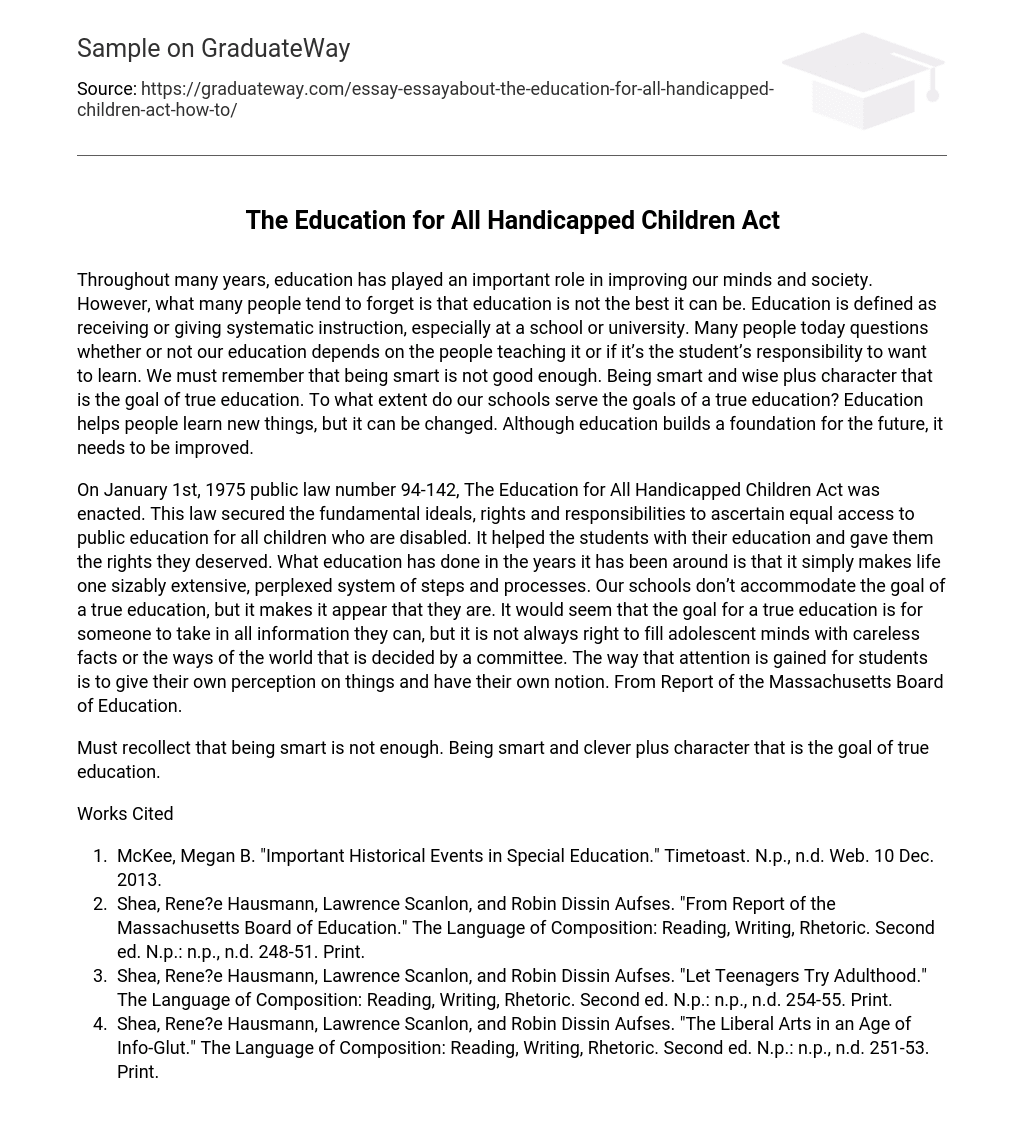Throughout many years, education has played an important role in improving our minds and society. However, what many people tend to forget is that education is not the best it can be. Education is defined as receiving or giving systematic instruction, especially at a school or university. Many people today questions whether or not our education depends on the people teaching it or if it’s the student’s responsibility to want to learn. We must remember that being smart is not good enough. Being smart and wise plus character that is the goal of true education. To what extent do our schools serve the goals of a true education? Education helps people learn new things, but it can be changed. Although education builds a foundation for the future, it needs to be improved.
On January 1st, 1975 public law number 94-142, The Education for All Handicapped Children Act was enacted. This law secured the fundamental ideals, rights and responsibilities to ascertain equal access to public education for all children who are disabled. It helped the students with their education and gave them the rights they deserved. What education has done in the years it has been around is that it simply makes life one sizably extensive, perplexed system of steps and processes. Our schools don’t accommodate the goal of a true education, but it makes it appear that they are. It would seem that the goal for a true education is for someone to take in all information they can, but it is not always right to fill adolescent minds with careless facts or the ways of the world that is decided by a committee. The way that attention is gained for students is to give their own perception on things and have their own notion. From Report of the Massachusetts Board of Education.
Must recollect that being smart is not enough. Being smart and clever plus character that is the goal of true education.
Works Cited
- McKee, Megan B. “Important Historical Events in Special Education.” Timetoast. N.p., n.d. Web. 10 Dec. 2013.
- Shea, Rene?e Hausmann, Lawrence Scanlon, and Robin Dissin Aufses. “From Report of the Massachusetts Board of Education.” The Language of Composition: Reading, Writing, Rhetoric. Second ed. N.p.: n.p., n.d. 248-51. Print.
- Shea, Rene?e Hausmann, Lawrence Scanlon, and Robin Dissin Aufses. “Let Teenagers Try Adulthood.” The Language of Composition: Reading, Writing, Rhetoric. Second ed. N.p.: n.p., n.d. 254-55. Print.
- Shea, Rene?e Hausmann, Lawrence Scanlon, and Robin Dissin Aufses. “The Liberal Arts in an Age of Info-Glut.” The Language of Composition: Reading, Writing, Rhetoric. Second ed. N.p.: n.p., n.d. 251-53. Print.





